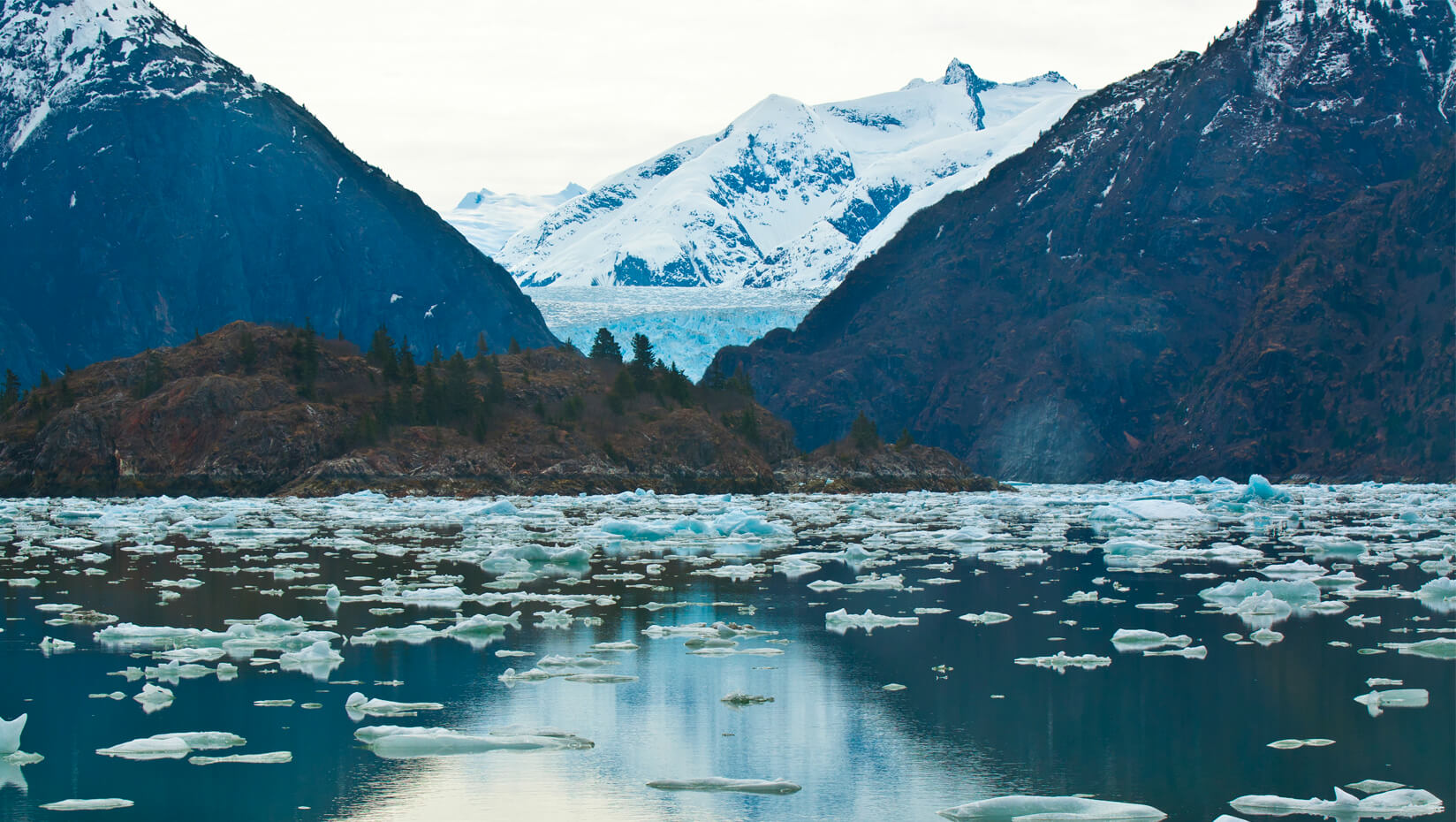
UMaine marine science students dive deep in Alaskan fjords
Two marine science students at the University of Maine started off 2016 a little differently than they had previous years.
For five days, Ashley Rossin and Elise Hartill collected red tree corals, Primnoa pacifica, from the Tracy Arm Fjord — a narrow, deep inlet of the sea nestled between high cliffs — located just south of Juneau, Alaska.
The corals were collected off the fjord’s wall, approximately 60 to 100 feet below the ocean’s surface. Red tree corals are octocorals, which are the “sea fans of coral reefs.”
“While this is normally a deep-water coral, the fjord creates an effect called deep-water emergence where deep-sea organisms can live at shallower depths because the conditions are the same,” says Rossin.
The researchers are evaluating how pH and temperature changes affect the development and efficiency of the cold-water corals’ reproductive structures. The researchers hope their observations will shed light on the implications climate change will have on coral organisms and marine ecosystems.
“It is a good species to collect because it’s a known habitat for several invertebrate and vertebrate species. This is important because their reproductive success determines the success of several Alaskan fisheries,” says Rossin.
Live corals were shipped for further analysis to a lab on Kodiak Island, off the south coast of Alaska.
After six months, the samples will be shipped to Maine where researchers at the University of Maine Darling Marine Center will evaluate any changes in morphology and reproduction that occurred under the experimental conditions.
The conditions were modeled after scientists’ predicted changes in the world’s oceans in the coming years, such as temperature and acidity increases.
Rhian Waller, professor of marine science at the Darling Marine Center, led the team on the research expedition. Waller has had a long-time study in the area and the team was collecting specimens to continue her research project and to start a new one.
Waller’s research focuses on the reproduction and development of cold-water and deep-sea invertebrates from around the globe and explores how these animals are affected by both natural and anthropogenic environmental change.
Because the ocean temperature off the coast of Alaska is about 34 degrees Fahrenheit, both students trained and prepared extensively for the trip, including earning their scientific and dry suit diver certifications.
Although the formal diving training was essential, the most important form of preparation, according to Hartill, was a mental one.
“There’s no way to replicate the exact conditions, so you have to mentally psych yourself up and tell yourself you’re going to get the job done no matter what. Like anything, the more you dive, the better you get at it,” says Hartill.
“It’s a challenge and diving in the cold is an even bigger challenge and every time I dive I feel like I’ve accomplished something that few have,” says Hartill, who chose UMaine’s marine science program because “it’s one of the best in the country.
And Rossin agrees.
Rossin came to the university after learning about the Darling Marine Center — UMaine’s marine science laboratory in Walpole, Maine. She was interested in the research being conducted in the Waller lab related to cold-water corals.
“I looked at other schools with a marine science degree, but none of them offered a hands-on field station, or a faculty member that studied coral reproduction,” said Rossin, who has wanted to study coral since she was a first-year student in high school.
Rossin says the opportunity to travel to Alaska to get hands-on experience working with cold water corals further solidified her career path.
“Scuba diving is the most freeing activity I’ve ever experienced. It is one of those experiences that is never the same twice, even if you’re diving in the exact same spot for a year, no two dives will ever be the same. It’s both calming and exhilarating and the cure for absolutely anything,” she says.
Contact: Margaret Nagle, 581.3745
